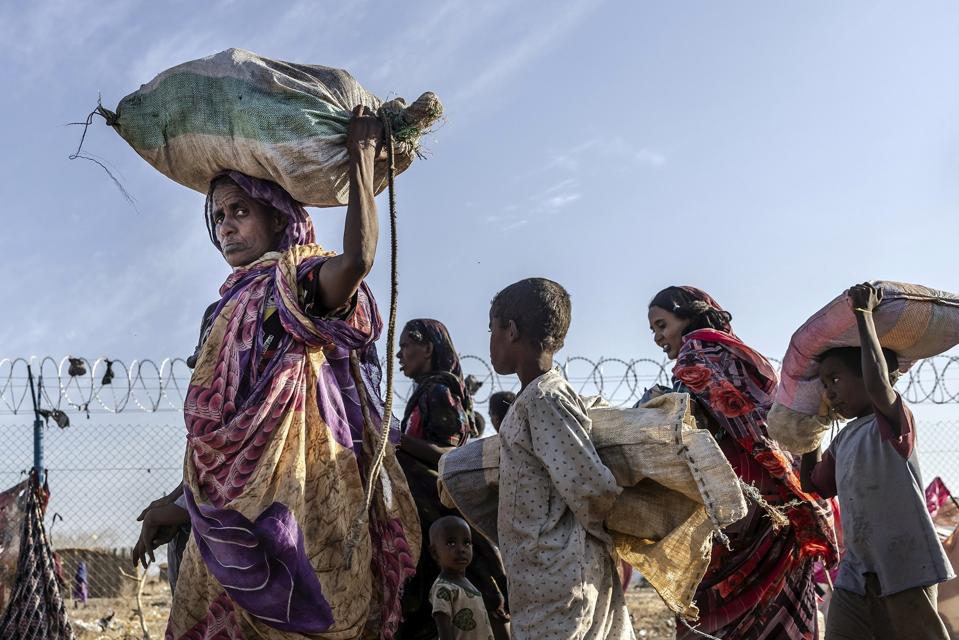We are living in a time when it seems like the entire world is on fire. Multiple genocides are unfolding simultaneously, civil war in several different parts of the world is ongoing and regional tensions and turmoil are impacting all of us in one way or another. Employees are expected to show up and work while grappling with trauma, stress, and the impacts of societal unrest. How are employees able to function when they may be directly impacted by increased ICE presence, for example, or when their family is living in a region marred by conflict and war? This article explores this question in more detail, highlighting meaningful ways to support employees who are working through trauma and tragedy.
“It’s important for us to feel heard…to know that the atrocities and suffering in Sudan are not going unnoticed,” shared board-certified cardiologist Dr. Mazin Omer Khalid, who is from Sudan. Currently, Sudan is experiencing a humanitarian crisis caused by an ongoing genocide, that hasn’t received enough visibility. “Sometimes all we need is the acknowledgement that Sudanese people are not forgotten, but acknowledgement alone is not enough,” Khalid explained. “One of the biggest gaps in this crisis is advocacy. Taking the time to learn what’s happening in Sudan and helping shed light on it, whether by sharing credible information or speaking up in your community and on social media, goes a long way in supporting those of us who have family enduring this war. Education and awareness are powerful forms of solidarity.”
Dr. Samantha-Rae, an operations and strategy executive, shared in regards to the Hurricane Melissa, which recently ravaged Jamaica, “The areas most impacted in Jamaica are agriculture and economic hubs that sustain the island, including hospitals in Saint Elizabeth and the travel hub, Sangster International Airport in Montego Bay.” When considering what support can look like for those directly impacted by Hurricane Melissa, Dr. Samantha-Rae, who is Jamaican, shared, “Support looks like empathy in action: checking in on your Jamaican coworkers, offering grace and flexibility around work responsibilities, and donating to credible relief efforts such as the official government fund at supportjamaica.gov.jm. This moment also calls for reflection, as the people least responsible for global warming are often the ones enduring its harshest effects. Real solidarity means seeing Jamaica as more than a vacation destination and standing with us as we rebuild, restore, and remember our shared humanity.”
“I have always spoken on Palestine and never shied away from it,” shared Omama Y. Marzuq, a Palestinian American who works in finance. “This last two years, I feel like I have been more vocal in what I will tolerate and not tolerate. I’m mentally numb to many things because of all the horror we have all been seeing on our phones…my partner lost 170 family members in Gaza.” Marzuq shared that being more open about her Muslim faith has helped her through the hard days. When thinking about what support can look like in the workplace, Marzuq shared, “Have open dialogue instead of asking why I’m not performing well. Put the human part in work.” As Marzuq explained, it’s imperative for workplace leaders to recognize the difficulties with working through this, and similar types of strife and to cultivate pathways for open dialogue as a support system for employees.
Organizational leaders must have some understanding of the heaviness that many employees are currently dealing with. Even though each person may be suffering in their own way, providing a multitude of support systems as well as avenues to share what employees are dealing with, is critical. Open dialogue, as Marzuq highlighted, is vital. Acknowledgement and education are also important. Leaders should be flexible and offer employees grace and empathy as well as considering tangible ways to support those directly impacted by tragedies.

